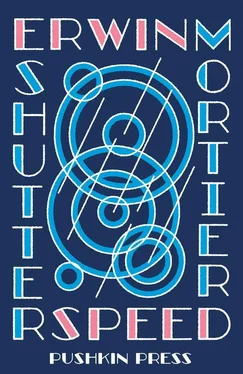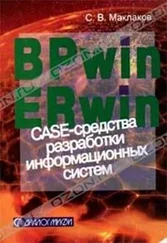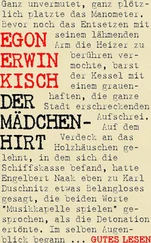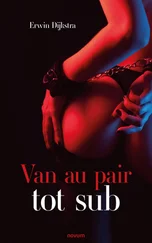It had started to drizzle. All around me the smell of long-parched earth yearning for rain floated up from the cracks in the pavement.
On the near side of the church, against the north transept, the graveyard had not yet been cordoned off. The gravestones stood erect, shoulder to shoulder, like a row of house-fronts in the greenish ground that rarely got any sun, but on the far side, over the brick wall, more barriers and tents awaited me. The shop looked out on a mass of plastic sheeting. Against the wall by the choir lay the nozzle of a hose, agape like the maw of a prehistoric beast.
I pushed open the door as Aunt was serving her last customer, who glanced over his shoulder to see who had come in. I heard him say, ‘Well now, here’s the student.’ The handle of my bag slipped from my grasp.
‘Gracious, lad,’ cried Aunt, ‘whatever’s the matter with you?’
‘Nothing, it’s nothing,’ I replied, but I couldn’t stop shaking.
‘Children,’ said the customer, ‘a never-ending worry, eh?’
I couldn’t put one foot ahead of another, so overpowered was I by the aromas coming my way like the old familiar faces of elderly relatives approaching in carpet slippers.
The smell of peppermint, freshly roasted coffee, smoked ham, snuff tobacco. The smell of cinnamon, of wild thyme, and the primness of the lavender sachets piled up at the far end of one of the shelves, waiting to suffuse every wardrobe with moth-free eternity. My ears were tweaked, I was tapped under my chin, I heard whispers. I saw the tins swell up on the shelves, I could hear their contents slop like digestive tracts. Beneath my feet the floor appeared to tilt and sway.
A cramp in my midriff doubled me up and prised open my jaws. I began to retch.
‘Good Lord,’ cried Aunt, rushing out from behind the counter with her apron held out in front of her. ‘Not on my floor! I only just mopped it!’
I pushed her away. ‘It’s nothing, I’m all right again now.’
‘Hurry up inside, then,’ she said, drawing herself up. ‘Werner!’
At the end of the passage I saw Uncle rise to his feet in the yellowish light of the reading lamp, beneath which he had no doubt been engrossed in the paper.
He turned and saw me. ‘Oh my poor boy, poor poor boy …’
He held out his arms. I sucked my lungs full of air to stave off a fresh wave of nausea, broke into a run as if my life depended on it, and hurled myself into his embrace. It was more of a head-on collision than a hug.
I can recall the rest of that evening in the minutest detail. During the intervals when the fever abated somewhat and a rush of coolness buffeted my bones, I was overwhelmed by a sensation of clarity no less beguiling than a mirage. The tureen filled with steaming broth, the dark brown loaf on the breadboard, the thick slices of macerated meat Aunt dished out, the wine-red checks on my sleeves. I was wearing Uncle’s dressing gown, which he had made me put on when he rinsed out my vomit-soiled shirt in the kitchen.
Outside, the Virginia creeper became tinged with mauve in the fading light, until the leaves were absorbed into the darkness of the garden. I heard Aunt saying they had no right to put me on a train by myself in the state I was in, and Uncle responding with a soothing ‘Now then, Ma’, to make her stop grumbling.
She had given me an aspirin. I sucked the pink tablet as judiciously as I could in order to prolong the bitterness on my palate and luxuriate in my invalid status. I don’t know if it was in fact influenza that had felled me. The preceding weeks had been harrowing. The city had swallowed me up in a chaos of honking vehicles, tram-cars jangling down streets on the end of electric tethers, office blocks periodically disgorging workers, esplanades inundated by civil servants waiting to be scooped up by water wheels of buses.
And then there was the playground with its colonnaded perimeter, where robed figures glided over the tiled walk as if they were airborne, where the hands of the clock reigned supreme, ruling lessons and breaks, causing bells to ring, sirens to go off, and stairs to shake under the recurrent stampede of feet on their way to the classroom or gymnasium.
Aunt made me comfortable in the armchair by the stove where she always sat when it grew chilly in the house. I remember how debilitated I felt as I nestled myself against the back of the chair in the luxury of the oversized dressing gown and a pair of Norwegian woolly socks, likewise oversized, as if I were retreating into a shell which, although it felt too big for me, would shortly prove too stifling, too starved of oxygen.
For despite the pain of those first weeks away from home, despite the cool and mechanical welcome afforded by my new environment, a world bereft of grass growing between cobbles and languorous afternoons to be whiled away at will, my imagination had been fired: as I marched down the school corridors that reeked of floor polish I could not take my eyes off the succession of maps lining the walls.
Snuggling down further into the armchair I listened to the music of the house, the slap of Aunt’s playing cards on the tabletop, Uncle crinkling his newspaper into labyrinthine folds for supposed ease of reading. The unpretentious symphony of familiarity, with that far-off door that would not stop banging, the leaky tap in the kitchen pattering a paternoster into the sink, the wind gusting down the chimney and the slightly out-of-kilter storage unit halfway down the passage, which always gave a loud indignant grunt when its doors were yanked open.
After the clock struck ten, Uncle asked whether I wanted him to carry me upstairs.
‘Oh please, don’t exaggerate,’ I said gruffly, and the hoarseness in my throat persisted in the following weeks until the last trace of my boy’s voice had been abraded out of existence.
From my bedroom window I could just see over the barrier. I could make out the shapes of the gravestones. Some of the crosses sagged, huddling together like lambs. I saw a giant shovel, the outstretched arm of a crane. It was as if the subsoil had melted during the day, as if the stones had slipped from their moorings and would now drift this way and that on the surface until the cold of evening froze the ground again.
Fingernails of rain tapped against the window pane. A breeze played in the tarpaulins, making them reflect the silver-white shimmer of the street lamp.
I took off the dressing gown and crept under the icy covers. Not three weeks had passed since my departure, but the wall beside the bed already gave off the brackish smell of abandoned buildings.
I sank into a slumber that felt like a body of water closing overhead. In the course of the night the fever raised me periodically to the surface, where I bathed in sweat. I turned over on my side and curled up, hugging my knees to my chest. I tumbled down snow-covered slopes, rolled through savannahs, dreamed of forests where the only sounds were birdsong and raindrops splattering on the foliage. All my tossing and turning had stencilled the sheets with an assortment of sweaty contours, so that I seemed to be lying back to back with myself.
Lianas twisted themselves about my ankles. I started awake from their stranglehold and got out of bed to fetch a glass of water. My sweat-drenched vest was a cold harness encasing my ribcage.
I stole through the darkened house to the scullery. All I longed for was to let go, topple over backwards, and heave a succession of sighs so that I might at length be subsumed into the plaster on the walls.
I held the glass under the tap, downed it in two, three draughts, filled it again, and again, and yet again, until the rawness in my throat had passed.
I don’t know what time it was, but it must have been close to midday, for broth being prepared in the kitchen could be smelt all over the house. Saturday — miserable weather and cups of hot broth.
Читать дальше












